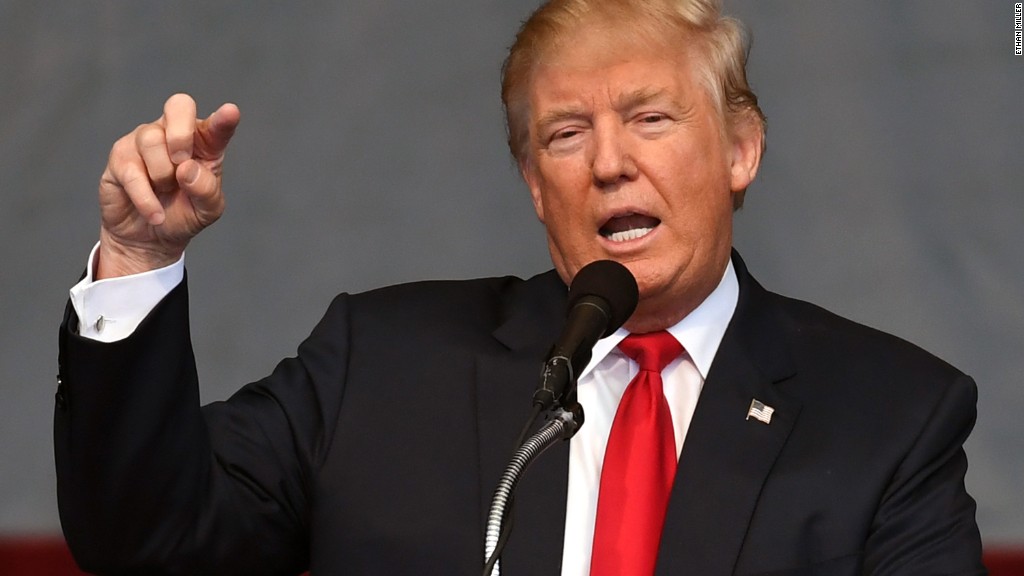
Donald Trump promises that his tax cuts will prompt U.S. companies to bring home the trillions of profits they have stashed overseas -- and then invest the money in American jobs and plants.
"Some people say there are $2 trillion dollars overseas, I think it's $5 trillion," he said during the campaign. "By taxing it at 10% instead of 35%, all of this money will come back into our country. We will turn America into a magnet for new jobs -- and that means jobs in our poorest communities."
The five companies with the most cash overseas -- Apple (AAPL), Microsoft (MSFT), Google (GOOGL), Cisco (CSCO) and Oracle (ORCL) -- have about $500 billion in foreign accounts, according to a report last week from credit rating agency Moody's. Trump met with the heads of all five companies Wednesday as part of his technology summit.
Related: American CEOs are thrilled with Trump
The rest of corporate America likely has about $784 billion in cash, according to Moody's. They're all stashing the funds abroad in order to avoid relatively high U.S. corporate tax rates.
But when companies have been granted tax breaks in the past, very little cash ended up returning to the U.S.
And some experts argue that companies are more likely to use any cash they do bring home to pay down debt, buy back shares or hike dividends. All of those moves would help boost a company's share price, and increase the value of stock and options given to top executives. But they won't do anything to build new factories or create jobs.
Instead of using overseas funds that would be heavily taxed in the U.S., Apple, Microsoft, Cisco and Oracle have all gone deeply into debt in the last five years to do share buy backs, boost dividends and make acquisitions, Moody's says.
It estimates the debt at those four companies has grown by more than 400% since 2012 to $259 billion. Apple alone has added $90 billion in debt.
Much of that low-interest rate debt is coming due soon, which Moody's says makes it even more likely that any cash that does come back would be used to pay it off.
Related: Apple, tech giants lead $1.6 trillion cash hoard
In 2004, when Congress passed a repatriation tax break, it tried to encourage jobs investment by restricting how they could spend the money. Instead, companies simply opted not to repatriate the cash at all.
Only 843 of 9,700 companies with overseas subsidiaries brought cash back home in 2004, according to the IRS. And the companies that brought back cash in 2004 ended up cutting 21,000 jobs instead of hiring more people, according to a 2011 Senate committee report.
"There is no evidence that the previous repatriation tax giveaway put Americans to work," said then Sen. Carl Levin, the Michigan Democrat who was chaired the Senate committee that issued that 2011 report. "There was substantial evidence that it instead grew executive paychecks, and propped up stock prices."

